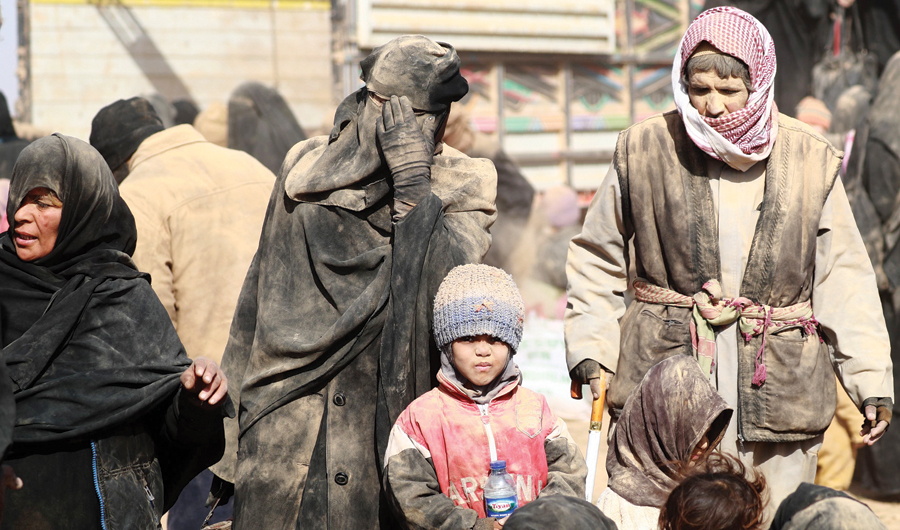US Senate wants troops to stay in Syria, Afghanistan
WASHINGTON: The Republican-led US Senate advanced largely symbolic legislation on Thursday opposing plans for any abrupt withdrawal of troops from Syria and Afghanistan.
The Senate voted 68-23 in favor of a non-binding amendment, drafted by Republican Majority Leader Mitch McConnell saying it was the sense of the Senate that militant groups in both countries continue to pose a “serious threat” to the US.
McConnell said he had introduced an amendment to a broader Middle East security bill urging a “continued commitment” until Al-Qaeda, Daesh and other groups are defeated.
“We’re not the world’s policemen, but we are the leader of the free world, and it’s incumbent upon the United States to lead, to maintain a global coalition against terror and to stand with our partners,” McConnell said in a speech in the Senate.
The procedural vote to cut off debate meant that the amendment would be added to a broader Middle East security bill likely to come up for a final Senate vote next week.
The amendment acknowledges progress against Daesh and Al-Qaeda in Syria and Afghanistan but warns that “a precipitous withdrawal” without effective efforts to secure gains could destabilize the region and create a vacuum that could be filled by Iran or Russia.
It calls upon the Trump administration to certify conditions have been met for the groups’ “enduring defeat” before any significant withdrawal from Syria or Afghanistan.
Thursday’s Senate action marked the second time in two months that the Republican-led Senate has supported a measure going against Trump’s foreign policy, although legislation to change his policies has yet to become law.
The potential impact of Thursday’s vote was uncertain, since the amendment McConnell offered was non-binding and there has been no indication of when, if ever, the broader Middle East security bill would come up for a House vote.
Trump has decided to withdraw 2,000 US troops from Syria on the grounds that Daesh militants no longer pose a threat, saying on Twitter on Wednesday, “We have beaten them” as he disputed Senate testimony by his director of national intelligence, Dan Coats, on Tuesday that the group still posed a threat.
Trump said earlier on Thursday he would bring American troops home if a peace deal were reached to end 17 years of war in Afghanistan. The US and the Taliban have sketched the outlines for an eventual peace accord, a US special envoy said on Monday, but there was no sign the insurgent group had accepted key US demands.

Civilians fleeing in eastern Syria need transit site, aid in winter: UNHCRKabul control slips in Afghanistan amid US talks with Taliban



